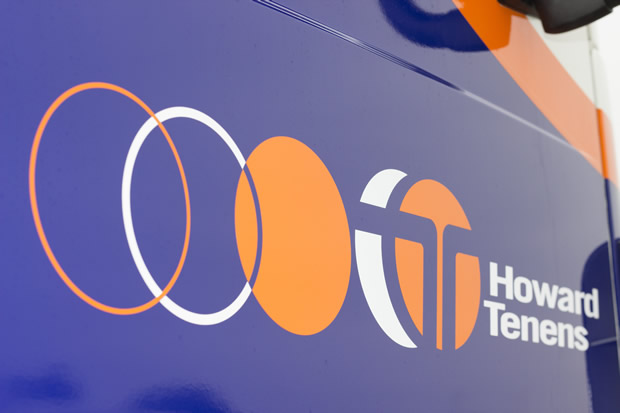Howard Tenens has purchased 42 new vehicles this year to update and expand its existing fleet. As part of its on-going commitment to cutting carbon emissions and providing a sustainable logistics service to customers 36 of these will run on dual fuel (Compressed Natural Gas and diesel). Howard Tenens is one of the UK’s largest privately owned third-party logistics companies. They provide supply chain solutions for an impressive customer portfolio, which includes many household names and Blue Chip companies, who want reliability and value for money.

Catherine Crouch, Howard Tenens’ Corporate Responsibility and Sustainability Director, stated:
“By the end of 2013, 88% of Howard Tenens’ heavy goods vehicles over 18 tonnes will be running on dual fuel. This is a fantastic achievement as it will mean we will have the highest proportion of dual fuel vehicles of any large UK fleet and we will have taken another major step forward in cutting our carbon emissions.”
The fleet replacement programme not only demonstrates Howard Tenens foresight by investing now to secure the businesses’ future, but also shows a commitment to customers, ensuring they have high quality, modern equipment, which delivers on environmental savings. When operating on diesel and CNG, the dual-fuel vehicles will reduce CO2 emissions by up to 15% compared to diesel, but when using biomethane instead of CNG the savings increase up to 60%. Emissions of other pollutants such as nitrogen dioxide and fine particles are also reduced which will benefit town and city centres which are struggling to meet air quality limits.
Howard Tenens is one of the earliest pioneers of dual fuel vehicles in the logistics sector, with trials carried out in 2009. Today there are 25 dual fuel vehicles in the fleet operating across three depots. Gas refuelling stations have also been installed at Andover, Aveley and Boston which not only serve the company’s fleet but are also open to third parties. A new gas station is currently being constructed at the Swindon depot to meet the needs of the new dual fuel fleet as well as those of customers’ vehicles.
Always committed to developing and improving the technology, Howard Tenens is involved in three projects funded by the Department for Transport and Technology Strategy Board which will monitor the operational and environmental performance of dual-fuel technology. A high proportion of the vehicles being purchased this year will be involved in the trials, and other low-carbon initiatives such as low weight and aerodynamic trailers will also be evaluated. Howard Tenens is partnering with John Lewis Partnership on two of these projects.
Justin Laney, Fleet Manager at John Lewis Partnership, commented:
“We are committed to reducing transport carbon emissions and expect gas dual-fuel trucks to play a large role. We are very pleased to be collaborating with Howard Tenens on these projects, sharing knowledge and experience to ensure we make it a success.”
HOWARD TENENS
Howard Tenens is one of the largest privately owned third party logistics companies in the UK with an impressive customer list of blue-chip clients. It operates all over the country from 15 depots and employs approximately 500 people; it has an annual turnover of circa £58 million.
In addition to the logistics business, Howard Tenens has two other divisions.
PROPERTY: Howard Tenens operates around 3 million square feet of high-quality secure warehousing space across the UK and owns 2.5 million square feet, giving it a unique advantage as a logistics company.
TENENS ENVIRONMENTAL: Established in 2008, Tenens Environmental implements initiatives to reduce the carbon footprint of storing and distributing customers’ products. Tenens Environmental explores ways to reduce fuel and energy consumption, and increase the recycling and recovery of waste. Tenens Environmental continually reviews its efficiency in everything from route planning and vehicle loading to alternative fuels and truck modifications, meaning the company can help customers to realise their own corporate environmental ambitions.




Comments are closed.